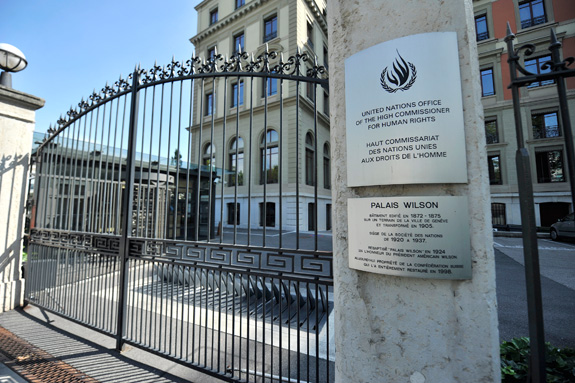UN: People With Disabilities Free To Make Own Decisions

A United Nations committee has issued new guidelines urging countries to recognize the importance of supported decision-making for people with disabilities. (UN/Jean-Marc Ferré)
People with even the most severe disabilities have the right to make their own decisions, no matter if their choices are risky or ultimately turn out to be mistakes, a United Nations panel says in new guidelines to nations.
The comments come from the U.N. Committee on the Rights of Persons with Disabilities — an 18-member group charged with monitoring the implementation of the Convention on the Rights of Persons with Disabilities — in a statement Tuesday designed to dispel misunderstandings about the international treaty.
Under the convention, nations commit to “recognize that persons with disabilities enjoy legal capacity on an equal basis with others in all aspects of life.”
Advertisement - Continue Reading Below
In practice, however, many people with disabilities around the world are denied fundamental rights including the opportunity to vote, marry and start a family based solely on their level of mental capacity, the U.N. committee said.
Rather than make choices on behalf of those with special needs, the panel clarifies in its new guidelines that the convention calls on nations to recognize the importance of supported decision-making where individuals are aided in fulfilling their own wishes.
In cases where it’s not reasonable to know what an individual wants, decisions should be based on the “best interpretation of their will and preference,” the committee said.
“Respect for the freedom to make choices should be accorded to all persons with disabilities, no matter how much support they need,” said Theresia Degener, a member of the Committee on the Rights of Persons with Disabilities. “People with disabilities, including those with psychosocial or cognitive impairments, must be supported in making decisions, and not have decisions made for them, even when it is thought to be in their ‘best interests.'”
At present, 145 countries have ratified the Convention on the Rights of Persons with Disabilities, which calls for greater community access and a better standard of living for people with disabilities around the world. The United States signed the treaty in 2009, but efforts to ratify it have so far been unsuccessful.
Read more stories like this one. Sign up for Disability Scoop's free email newsletter to get the latest developmental disability news sent straight to your inbox.


